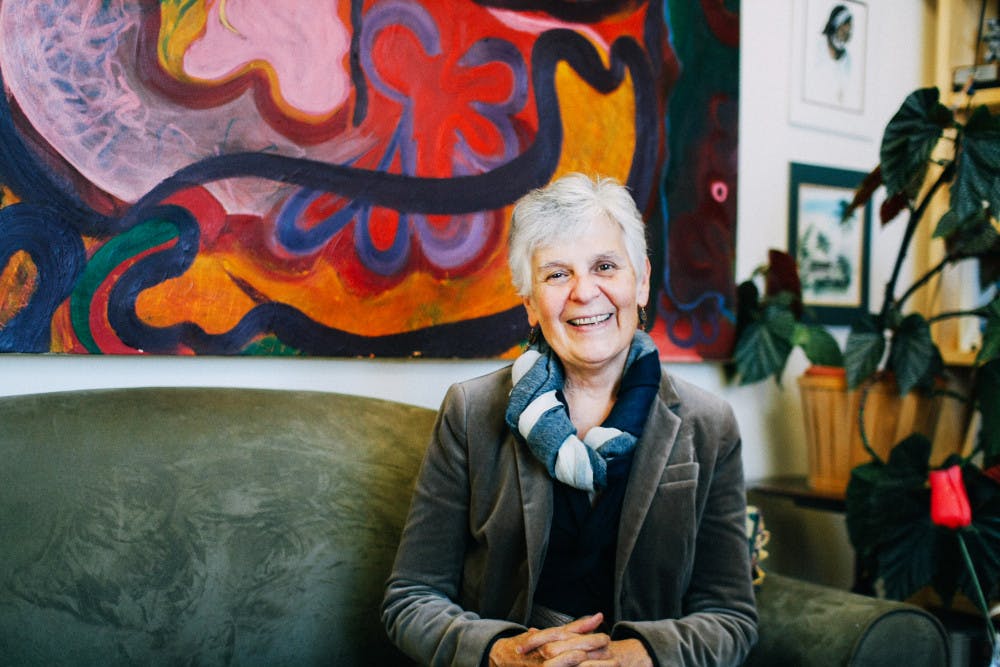Just days after the violence in Charlottesville this August, the Association of American Colleges and Universities announced that it had selected Brown as one of 10 schools that will receive a grant to tackle racial issues and work toward racial healing.
Each site, or “Truth, Racial Healing and Transformation Campus Center,” will receive a $30,000 grant from the association in partnership with the W.K. Kellogg Foundation and the Newman’s Own Foundation to be used over the next three years, according to a press release from the association. The grant was created “to engage and empower campus and community stakeholders to break down racial hierarchies and create a positive narrative about race in the community,” according to the association’s website.
At Brown, this award will support two discussion dinner groups — one for black students and the other for Muslim women on campus, said Janet Cooper Nelson, chaplain of the University, who will lead these initiatives.
The dinner for black students expands upon a four-week-long pilot project that began during this year’s Black History Month and ended up running for eight weeks, Cooper-Nelson said. The group brings together black students to discuss their experiences and racial dynamics of life at Brown.
Jamall Calloway, presidential postdoctoral fellow with the Center for the Study of Race and Ethnicity in America, said that he hopes not only to listen and learn from the students during these meetings, but also to ensure that difficult topics don’t go unnoticed.
“I want to make sure that justice and liberation and fairness for black people isn’t compromised in rhetoric that focuses on healing and reconciliation,” Calloway said.
The discussion dinners for female Muslim students share a similar aim. Cooper-Nelson hopes that the space will allow the women to engage in topics such as the intersection of race, Islam and gender fluidity.
These small-group settings often raise “questions that are unsettling, questions that need to be discussed in the community,” Cooper-Nelson said. She also expressed the hope that students may emerge as leaders from these discussions — perhaps by expanding to new topics, sharing ideas with the greater campus or bringing the discussions into their academic life.
The association will also host a kick-off meeting in September for representatives from all ten schools, as well as an inaugural Truth, Racial Healing and Transformation Institute in January in Washington D.C., according to the Association of American Colleges President Lynn Pasquerella PhD ’85. During the kick-off meeting, school representatives will discuss the “Truth, Racial Healing and Transformation Institute” framework and discuss the specific challenges that campuses face, Pasquerella added.
“We will be … embarking on an endeavor toward issues that are more critical than ever,” Pasquerella said. She emphasized the important role that higher education plays in addressing the history and legacies of racism.
The University will also lead studies to gauge the projects’ impact, Cooper-Nelson says.
“If you’re telling me that a threat in this world is impending at all on your education, then we need to do something about that,” Cooper-Nelson said.
Correction: A previous version of this article named Jamall Calloway as a postdoctoral research associate in race and ethnicity in America. In fact, he is a presidential postdoctoral fellow with the Center for the Study of Race and Ethnicity in America. The Herald regrets the error.





